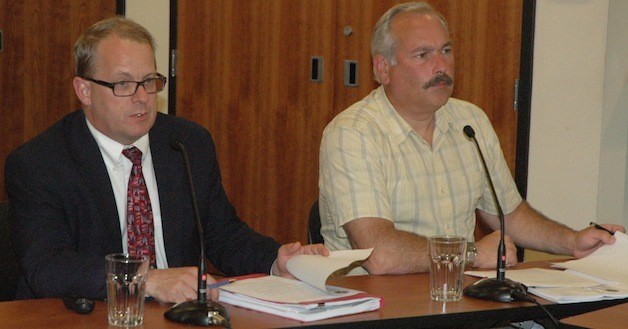ARLINGTON — The city of Arlington is facing a deadline in August.
After the Marysville City Council voted unanimously on June 24 to prohibit medical marijuana dispensaries and collective gardens within the city of Marysville, the Arlington City Council was reminded by city of Arlington Community Development Director Paul Ellis, during their July 22 workshop meeting, that they only have one meeting left, on Aug. 5, to hold a public hearing and vote on a similar prohibition, before Arlington’s temporary moratorium on medical marijuana dispensaries and collective gardens is due to sunset on Aug. 14.
The Arlington City Council has been extending its six-month moratoriums on medical marijuana dispensaries and collective gardens since Aug. 15, 2011, and at their July 22 meeting, Ellis touted the proposed ordinance to amend the Arlington Municipal Code, “to clarify that medical marijuana dispensaries and collective gardens are not permitted uses under city zoning law,” as a means of ensuring that the city of Arlington’s standards will be consistent with those of the cities of Marysville and Lake Stevens, since representatives of all three cities have worked together on this issue.
“This is a belt-and-suspenders approach,” Arlington City Attorney Steve Peiffle said. “We’re relying on both the state and federal government to guide our local laws here.”
The proposed ordinance quotes the Washington State Department of Health’s conclusions that it is not legal to buy or sell medical marijuana, and that the law does not allow dispensaries, leaving enforcement to local officials. If passed, the ordinance would declare that the Arlington City Council finds that the sale of marijuana, no matter how designated by dispensaries, remains prohibited by federal and state law.
Under the proposed ordinance, the city of Arlington would acknowledge the right of qualified health care professionals to prescribe the medical use of marijuana, as well as the right of patients to designate a “designated provider” who could “provide” rather than sell marijuana to only one patient at any one time. However, the ordinance also cites a section of the medical marijuana bill adopted with a partial veto of Gov. Christine Gregoire in 2011, which “effectively eliminates medical marijuana dispensaries as a legally viable model of operation under state law.”
One section of the proposed ordinance noted the “numerous adverse land use impacts” in other communities where medical marijuana uses have been approved, including the conversion of residential-use property into facilities for marijuana cultivation and processing, as well as “degrading neighborhood aesthetics,” environmental damages from chemicals, fire hazards, improper ventilation leading to high levels of mold, illegal structural modifications, and crimes ranging from home invasions and burglaries of medical marijuana facilities to theft and property damage.
“It just seems like this would cause less problems in a larger city,” Arlington City Council member Dick Butner said. “We don’t need to bring that trouble here.”







